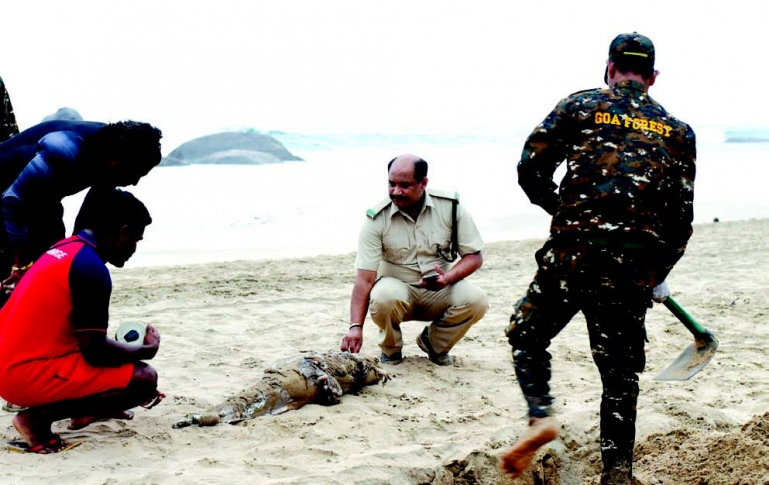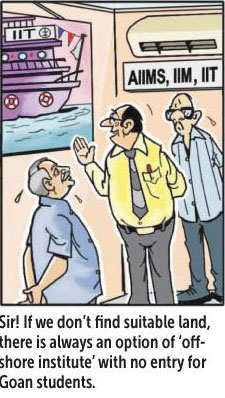
Team Herald
MARGAO: The recent surge in dolphin deaths along Goa’s beaches has sparked concern among wildlife activists, who are alarmed over the apparent lack of effective measures to address the issue. In just the past week, over five such incidents have been reported, with four occurring in South Goa alone. This troubling trend follows a similar series of dolphin strandings in February.
Among the casualties are five finless porpoises, a species native to Goa’s coastal waters, whose local population is now facing decimation due to these recurring fatalities. Just this week, four more dolphin carcasses washed ashore in South Goa, three at Varca and one at Zalor. Conservationists allege that the State’s Forest Department has been ineffective in addressing the crisis, accusing it of not sharing adequate data on these incidents, which they feel is necessary for taking measures to address these issues. Urgent calls are being made
for increased monitoring, transparency, and concrete conservation measures.
Referring to the present system of reporting and responding to the strandings, activists highlight the need for a “long-term monitoring network and State-supported system” specifically focused on the finless porpoise and Indian Ocean humpback dolphin - both globally endangered near-shore species accorded the highest legal protection in India. They explain that stranding reports are fielded through a Statewide marine wildlife network established in 2017 by the Forest Department in collaboration with organisations like Drishti Marine, Terra Conscious, IUCN India, and more recently Reefwatch, which provides veterinary support.
However, they express dismay over what they describe as a lack of expedient action and data-sharing from authorities. One activist lamented, “Reports come in regularly, like the decomposed whale carcass last night from Vagator. But even drivers of stranding need to be addressed for conservation action.”
Different anthropogenic stressors, overfishing, increasing boat traffic, high-speed activities, pollution, and climate impacts contribute to stranding.
The activists urge the Forest Department via the State
government to build research capacity, awareness programmes, and take the lead on this pressing issue.
According to these activists, post-mortem examinations are conducted by the Forest Department, but accessing those details has proven to be challenging for them. Their overarching message is one of urgency to save Goa’s dwindling dolphin populations from further man-made stressors that may “push these populations to the brink.”
Dead whale beached at Ozrant-Vagator; decomposed carcass removed only after 12 hours
VAGATOR: The carcass of a huge whale washed ashore at Ozrant-Vagator Beach late Thursday night. The carcass is estimated to be around 15 metres long and was found in a decomposed state. The carcass began disintegrating and spreading along the beach. Locals were upset as the stench of the dead whale was lingering across the entire stretch.
The Forest Department was immediately informed as soon as the whale was spotted, but locals alleged that no action was taken for the next 12 hours, until Friday morning.
“The entire beach stretch was stinking. Parts of the carcass were littered along the beach. This is bad for our health,” said a local.
he Forest Department got into action on Friday and the carcass was lifted by an earthmover and buried in the sand.
